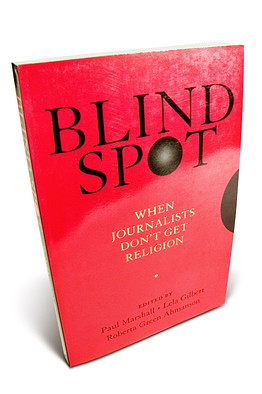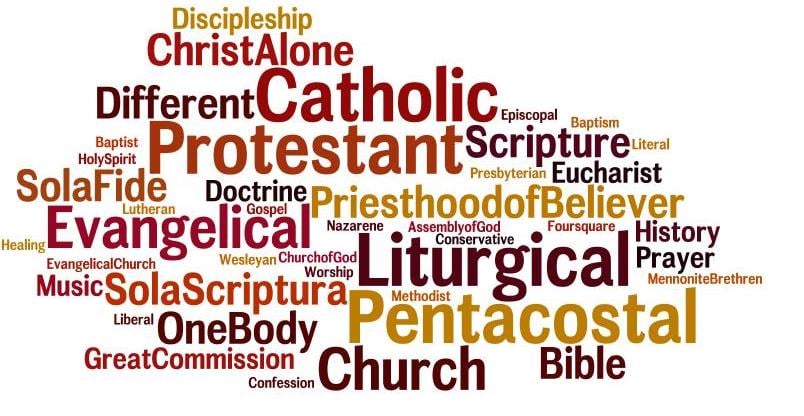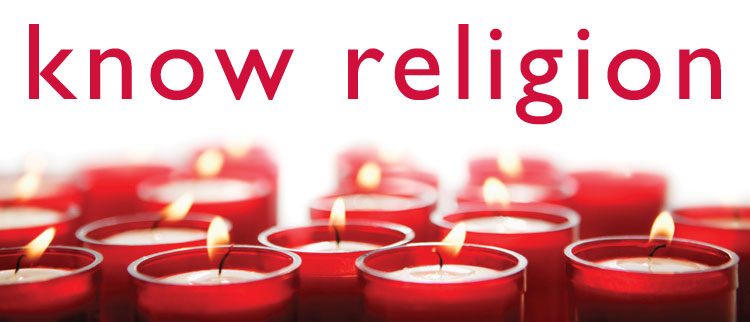Last updated on: November 29, 2012 at 1:58 pm
By
tmatt
Anyone who has followed GetReligion for very long knows what the letters WWROD stand for. I mean, the first reference of this kind showed up only a few weeks into the blog’s existence, way back in 2004.
WWROD? We’re asking, What Would Richard Ostling Do?
Ostling, of course, is the former religion-beat pro at Time, back in the days when that weekly magazine was a force in hard news, and then with the Associated Press. For those of us who arrived on the Godbeat in last quarter of the 20th Century, it would be hard to name someone we respected more or whose work carried more professional authority (with Russ Chandler of the great Los Angeles Times religion team joining him in the top ranks).
Thus, I am happy to pass along the following email from Ostling, which followed several chats on this topic during the recent Religion Newswriters Association meetings here in Beltway territory:
Forsaking lazy retirement mode I am about to launch a new “Religion Q and A” blog for patheos.com, probably the most important interfaith site on the Internet.
Most features on Patheos are opinionated, faith-specific (Buddhist, Catholic, Pagan) … whereas mine will be non-partisan and journalistic in approach and cover wide-ranging topics.
We’ll be asking folks in cyberspace to send in questions regarding any and all faiths, any Scriptures, current church-state and religion-politics issues, moral quandaries and other such puzzlements and curiosities. If I’m able, I’ll post an answer with others then welcome others to add comments.
To get this thing launched I need savvy folks to start providing some interesting questions for me to try to answer. If willing, would you, and contacts in your circle of friends who’d be interested in this, send in questions that I’ll consider for the first postings on the site? Simply go to http://www.patheos.com/blogs/religionqanda/
On the right-hand side type in your question and click “Send” which transmits it to me to consider for a posted answer.
The name, in other words, is “Religion Q and A: The Ridgewood Religion Guy Answers Your Questions.” I had lobbied hard for “The Religion Answer Man.” Whatever. This is great news no matter what it’s called. I’ve been bugging this man for years about getting involved in a blog, whether writing for GetReligion every now and then or pursuing some other online option.
Once this is up and running, Ostling will be in the Patheos “News and Politics” channel, which is also the home of GetReligion. Obviously, Ostling expects to get his share of questions about the role of religion in the news and public life and, thus, GetReligion plans to feature at least one of his posts each week. It’s the kind of cooperation we hope to see more of around these cyber-parts (hint, hint former GetReligionista Jeremy Lott and Deacon Greg Kandra, the former CBS News scribe).
Those seeking a quick introduction to Ostling, via audio, can check out this interview conducted at the Calvin Institute of Worship.
For a sample of Ostling’s print work — one that is highly relevant to his new blogging format — click here for a 2005 GetReligion post focusing on a short Associated Press analysis piece in which he tried to explain the unexplainable, as in the very divergent schools of sexual ethics found in the global Anglican Communion. That full AP report can be found stashed away right here.
Here’s a large chunk of that AP text, focusing on the four camps that Ostling calls “dismissal, perplexity, renovation and traditionalism.”
Dismissal is the left-fringe attitude personified by Bishop John Shelby Spong, former head of the Newark, N.J., diocese. In “The Sins of Scripture” (HarperSanFrancisco), he says calling the Bible “the Word of God” (a belief he himself affirmed at ordination) is “perhaps the strangest claim ever made” for a document. Spong finds the Old Testament’s homosexual prohibitions ignorant and “morally incompetent” expressions of “popular prejudices.” With the New Testament, he disdains Paul’s condemnations as “ill-informed” ravings from a zealot who, he hypothesizes, was a “deeply repressed, self-loathing” homosexual.
“The contending positions are mutually exclusive,” he concludes, and “there can be no compromise.” He dismisses conservative views as “frail, fragile and pitiful.”
The other three approaches were displayed at a … hearing before the international Anglican Consultative Council. …
Perplexity was the outlook of Anglican Church of Canada representatives. Their denomination affirmed the “integrity and sanctity” of homosexual relationships and tolerated a diocese’s blessing ceremonies for same-sex couples. The Canadians said they are “seeking discernment” but face “deep divisions” and lack consensus.
Renovation was the policy of the U.S. Episcopal Church in its report “To Set Our Hope on Christ,” written by seven theologians. It was the denomination’s first official rationale for recognition of the unhindered same-sex blessings in its ranks and for toleration of openly gay clergy, including a bishop.
Traditionalists answered that argument with “A True Hearing,” a paper by writers from nine nations that the Anglican Mainstream group gave to delegates to explain the stance endorsed in 1998 by 82 percent of the world’s Anglican bishops.
And so forth and so on. In other words, Ostling is going to help point readers and, I would imagine, some journalists toward information and resources on complex religion-news questions. I would be hard-pressed to name a better scribe to take on that task.
Stay tuned.











